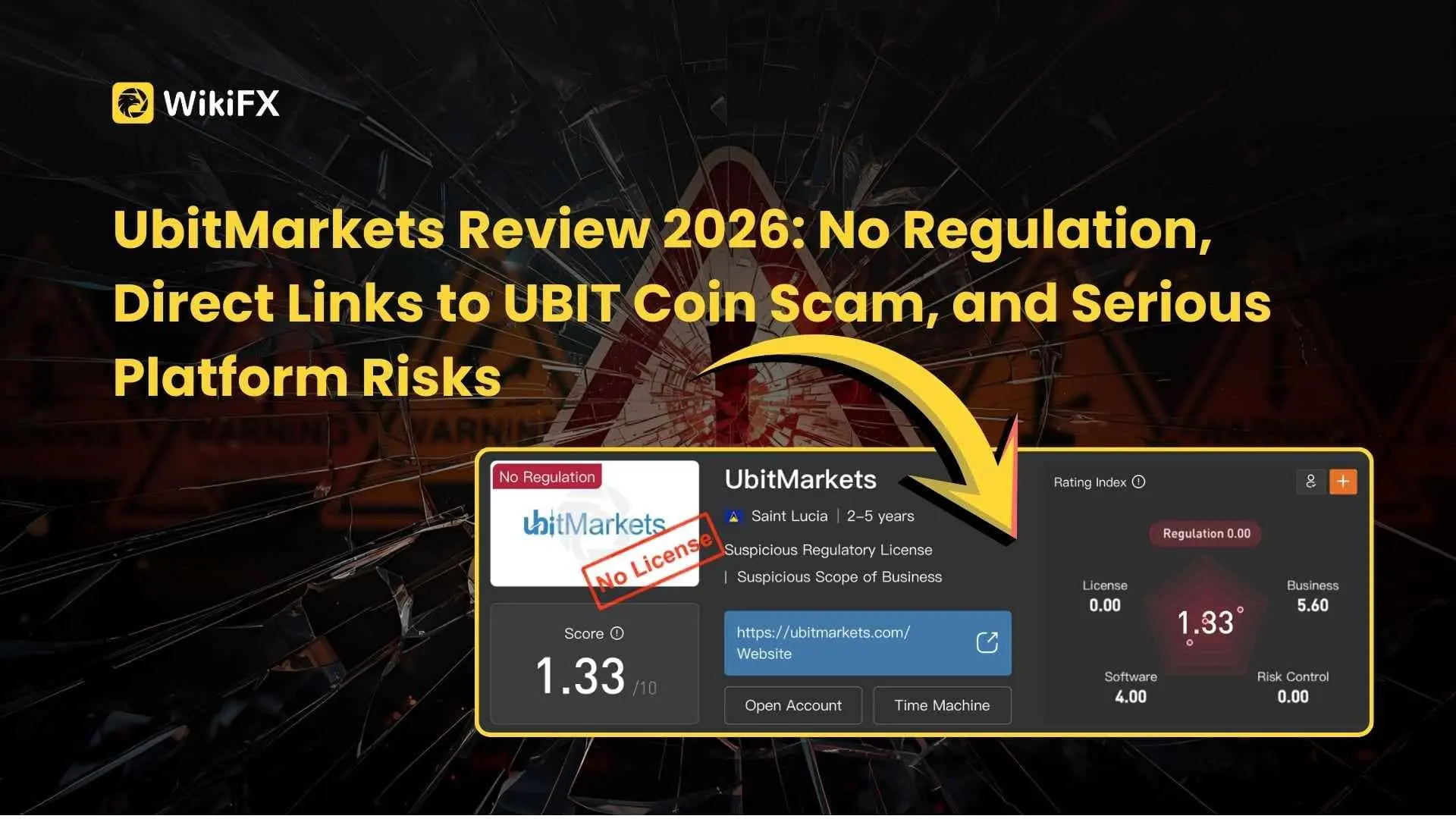UbitMarkets Review 2026: No Regulation, Direct Links to UBIT Coin Scam, and Serious Platform Risks
UbitMarkets review reveals no valid license and direct links to a fraudulent project, raising serious concerns over investor fund safety.
简体中文
繁體中文
English
Pусский
日本語
ภาษาไทย
Tiếng Việt
Bahasa Indonesia
Español
हिन्दी
Filippiiniläinen
Français
Deutsch
Português
Türkçe
한국어
العربية
Abstract:Bitcoin experienced a sharp decline in February, marking its most significant monthly loss since June 2022. The cryptocurrency fell by 17.5%, placing it firmly in a bear market as enthusiasm surrounding digital assets waned.

Bitcoin experienced a sharp decline in February, marking its most significant monthly loss since June 2022. The cryptocurrency fell by 17.5%, placing it firmly in a bear market as enthusiasm surrounding digital assets waned. The downturn followed a record high of $109,071 in mid-January, with Bitcoin closing the month at approximately $84,252, having touched a three-month low of $78,273.
The decline was triggered by a combination of macroeconomic concerns, a major security breach, and shifting market sentiment. The broader financial markets also displayed increased volatility, with investor anxiety stemming from the prospect of new tariffs imposed by the Trump administration on imports from Canada, Mexico, and China. While Bitcoin had initially surged in the wake of Trumps election victory, speculation that his administration would support the cryptocurrency sector began to diminish in February, contributing to the decline.

Bitcoin‘s price movement often mirrors broader market trends, behaving as a high-beta asset. The cryptocurrency’s decline coincided with a downturn in the Nasdaq 100 Index, which fell approximately 7% from its last peak on 19 February. This shift was accompanied by a rally in US Treasuries, a reflection of investors seeking safer assets amid geopolitical and economic uncertainty.
The market responded negatively to fears surrounding Trump‘s aggressive trade policies. The administration’s proposed tariffs raised concerns about potential economic repercussions, further dampening investor confidence. Analysts noted that Bitcoin's price drop could be attributed to these macroeconomic fears, which led to a broader selloff in riskier assets.

Investor sentiment suffered an additional blow following a cyber-attack on the Bybit exchange on 21 February, which resulted in the theft of approximately $1.5 billion in digital assets. The breach, widely attributed to North Koreas Lazarus Group, targeted cold wallets—a type of offline storage previously considered highly secure. This unprecedented theft eroded confidence in the security of cryptocurrency exchanges, leading some investors to reconsider their positions.

Bitcoin exchange-traded funds (ETFs) also played a role in amplifying the selloff. February saw the largest monthly net outflow of spot Bitcoin ETFs since their inception in January 2024, with an estimated $3.3 billion exiting the market. This outflow created a self-reinforcing cycle, as Bitcoins declining price prompted investors to withdraw from ETFs, which in turn triggered further selling pressure.

Bitcoin had initially benefited from speculation that the Trump administration would actively support the cryptocurrency industry. However, while Trump had promised to create a strategic national Bitcoin reserve, progress on the initiative stalled. Although the former president did announce plans to include XRP, Solana, and Cardano in a newly established Crypto Strategic Reserve, market participants remained unconvinced. The lack of concrete action contributed to Bitcoins downward trajectory.
Additionally, a legislative proposal by Republican Senator Cynthia Lummis to establish a government-backed Bitcoin reserve failed to gain traction in Congress. Meanwhile, state-level initiatives to create crypto reserves were also rejected in several regions, further diminishing investor optimism.
Despite February‘s losses, Bitcoin has historically recovered from sharp declines. The cryptocurrency’s resilience was evident when, after plunging 41% in June 2022, it rebounded by 26% in the following month. While uncertainty persists, market observers continue to monitor macroeconomic trends, regulatory developments, and institutional inflows for signs of a potential recovery.
For now, Bitcoin remains highly sensitive to external market forces, with its price trajectory likely to be influenced by broader economic conditions and policy decisions in the coming months.

Disclaimer:
The views in this article only represent the author's personal views, and do not constitute investment advice on this platform. This platform does not guarantee the accuracy, completeness and timeliness of the information in the article, and will not be liable for any loss caused by the use of or reliance on the information in the article.

UbitMarkets review reveals no valid license and direct links to a fraudulent project, raising serious concerns over investor fund safety.

Is withdrawing capital from PaxForex too difficult for traders? Has the China-based forex broker made you trade gold, silver and cryptocurrencies despite not having an office in the United States? Do you find its operational style suspicious? You are not alone! Several traders have expressed these concerns when trading with the broker. In this PaxForex review article, we have exposed the broker through user comments made on several review platforms. Take a look!

When traders ask, "Is OneRoyal legit or a scam?" The answer isn't simply yes or no. OneRoyal is a trading company that has been running for almost twenty years and has important licenses from top financial authorities. This background puts it far away from typical quick scam operations. However, questions about whether it's trustworthy are reasonable and often come from its complicated business structure, the use of overseas companies, and a pattern of specific, serious complaints from users. This article aims to go beyond marketing claims and provide a fact-based analysis of OneRoyal's trustworthiness.

Crypto exchange Bybit will limit access for Japanese users in 2025, citing compliance with strict local regulations.
